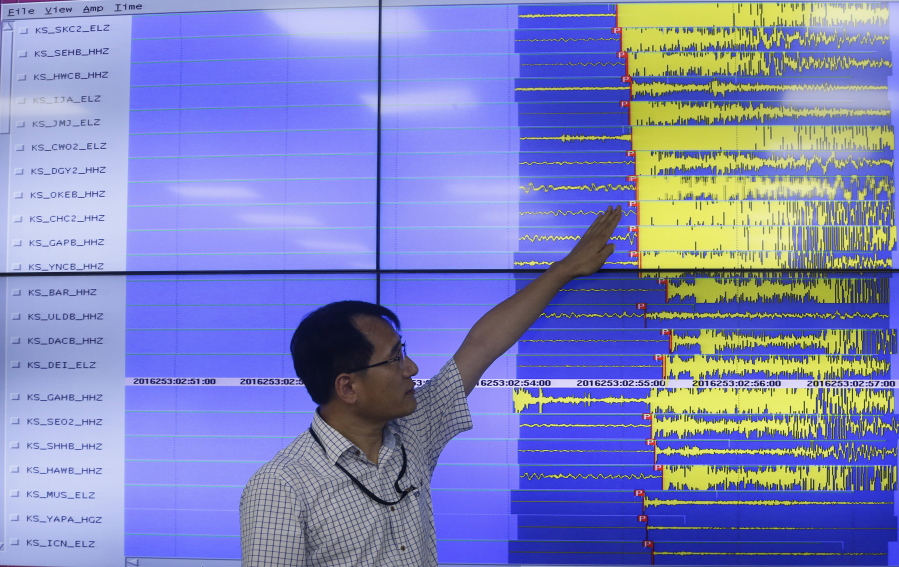The world’s leaders expressed outrage and alarm Friday over North Korea’s latest nuclear test, as Pyongyang’s accelerating nuclear program is emerging as a major national security threat that a new U.S. president will confront.
In a White House statement, President Barack Obama condemned Friday’s test as “provocative and destabilizing” and a “grave threat” to regional and international stability. He said the U.S. and allies will seek new United Nations sanctions and take other measures “to demonstrate to North Korea that there are consequences to its unlawful and dangerous actions.”
“To be clear, the United States does not, and never will, accept North Korea as a nuclear state,” he said.
The U.N., which in March imposed some of the harshest economic sanctions ever against North Korea, called an emergency meeting to discuss the test, which state news media claimed now allows Pyongyang to produce nuclear warheads small enough to attach to ballistic missiles. The latest test, North Korea said, was its biggest yet, although it may take several days to determine how powerful it was.
At the United Nations, diplomats called for more resolutions and actions.
Jean-Marc Ayrault, the foreign minister of France, a permanent member of the Security Council, said North Korea’s latest “provocation cannot be left without consequences, especially at the U.N. Security Council.”
Secretary General Ban Ki-moon condemned what he called a “brazen breach” of U.N. resolutions.
“I count on the Security Council to remain united and take appropriate action,” he told reporters. “We must urgently break this accelerating spiral of escalation.”
Secretary of State John Kerry said the U.S. would work with other Security Council members to take “robust steps” in response, and he urged North Korea to resume denuclearization talks it abandoned in 2009.
“We remain open to credible and authentic talks aimed at full and verifiable denuclearization of the DPRK,” he said, referring to the country’s official name, the Democratic People’s Republic of Korea. “Sadly, the DPRK has chosen a different path and made clear it would not be a credible negotiating partner.”
Other leaders used particularly blunt language to denounce what Australian Prime Minister Malcolm Turnbull called North Korea’s “reckless, provocative, dangerous” actions.
South Korea accused the North’s leader, Kim Jong Un, of “fanatic recklessness.” South Korean President Park Geun-hye said his mental state is “spiraling out of control.”
Japan branded North Korea an “outlaw nation in the neighborhood.” Russia insisted that Pyongyang “stop its dangerous escapades.” The International Atomic Energy Agency said North Korea had displayed “complete disregard of the repeated demands of the international community.”
Even China, Pyongyang’s only ally and its economic lifeline to the outside world, said it was “resolutely opposed” to the test and warned North Korea to refrain from further actions that would worsen the situation.



